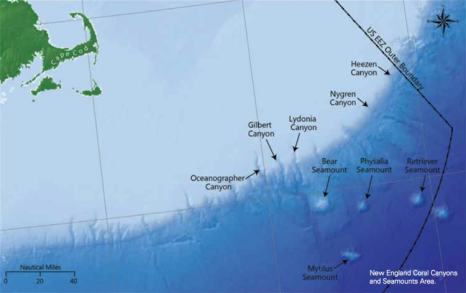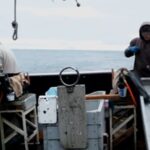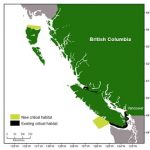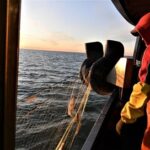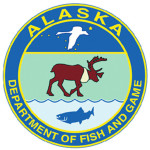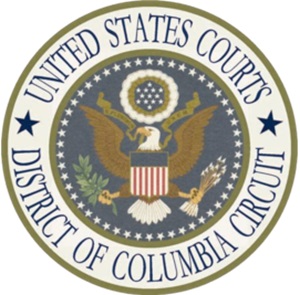 A U.S. appeals court on Monday appeared open to upholding a federal rule requiring commercial fishermen to fund a program to monitor for overfishing of herring off New England’s coast even after the U.S. Supreme Court in that same case issued a landmark ruling curbing agencies’ regulatory power. A three-judge panel of the U.S. Court of Appeals for the District of Columbia Circuit, during oral arguments, weighed the impact of the U.S. Supreme Court’s June decision, opens new tab to scrap a 40-year-old legal doctrine that had required courts to defer to agencies’ interpretations of ambiguous laws they administer. The 6-3 conservative majority U.S. Supreme Court nixed the doctrine, known as “Chevron deference,” after taking up an appeal by several commercial fishing companies of the D.C. Circuit panel’s 2-1 ruling in August 2022, opens new tab that had relied on the doctrine to uphold the fishing rule. more, >>CLICK TO READ<< 07:03
A U.S. appeals court on Monday appeared open to upholding a federal rule requiring commercial fishermen to fund a program to monitor for overfishing of herring off New England’s coast even after the U.S. Supreme Court in that same case issued a landmark ruling curbing agencies’ regulatory power. A three-judge panel of the U.S. Court of Appeals for the District of Columbia Circuit, during oral arguments, weighed the impact of the U.S. Supreme Court’s June decision, opens new tab to scrap a 40-year-old legal doctrine that had required courts to defer to agencies’ interpretations of ambiguous laws they administer. The 6-3 conservative majority U.S. Supreme Court nixed the doctrine, known as “Chevron deference,” after taking up an appeal by several commercial fishing companies of the D.C. Circuit panel’s 2-1 ruling in August 2022, opens new tab that had relied on the doctrine to uphold the fishing rule. more, >>CLICK TO READ<< 07:03Tag Archives: New England Fisherman
Court open to upholding US fishing monitor rule even without ‘Chevron’ doctrine
 A U.S. appeals court on Monday appeared open to upholding a federal rule requiring commercial fishermen to fund a program to monitor for overfishing of herring off New England’s coast even after the U.S. Supreme Court in that same case issued a landmark ruling curbing agencies’ regulatory power. A three-judge panel of the U.S. Court of Appeals for the District of Columbia Circuit, during oral arguments, weighed the impact of the U.S. Supreme Court’s June decision, opens new tab to scrap a 40-year-old legal doctrine that had required courts to defer to agencies’ interpretations of ambiguous laws they administer. The 6-3 conservative majority U.S. Supreme Court nixed the doctrine, known as “Chevron deference,” after taking up an appeal by several commercial fishing companies of the D.C. Circuit panel’s 2-1 ruling in August 2022, opens new tab that had relied on the doctrine to uphold the fishing rule. more, >>CLICK TO READ<< 07:03
A U.S. appeals court on Monday appeared open to upholding a federal rule requiring commercial fishermen to fund a program to monitor for overfishing of herring off New England’s coast even after the U.S. Supreme Court in that same case issued a landmark ruling curbing agencies’ regulatory power. A three-judge panel of the U.S. Court of Appeals for the District of Columbia Circuit, during oral arguments, weighed the impact of the U.S. Supreme Court’s June decision, opens new tab to scrap a 40-year-old legal doctrine that had required courts to defer to agencies’ interpretations of ambiguous laws they administer. The 6-3 conservative majority U.S. Supreme Court nixed the doctrine, known as “Chevron deference,” after taking up an appeal by several commercial fishing companies of the D.C. Circuit panel’s 2-1 ruling in August 2022, opens new tab that had relied on the doctrine to uphold the fishing rule. more, >>CLICK TO READ<< 07:03
An Optimist’s view: Death of the Chevron Deference
My name is David Goethel. I am a 55 year plus commercial fisherman, research biologist and former fishery manager. As author of Endangered Species/Chronicles of A new England Fisherman I discuss these topics and a lawsuit I filed in 2015 with the legal group Cause of Action over the legal concept known as Chevron Deference. Most people believe Congress writes laws, the Executive Branch carries out those laws and the Judicial Branch interprets and clarifies whether aspects of those laws are Constitutional and correctly applied. It turns out under a doctrine called “Chevron Deference” the regulatory bureaucracy can deem a law unclear or ambiguous and create any regulation the agency decides it needs to carry out its bureaucratic function. Until this past Friday, the courts gave deference to the regulators as the “recognized experts” even though no proof is required and no test for ambiguity is applied. The Supreme Court overturned Chevron Friday saying they had “placed a tombstone on its grave”. Fishermen, including me, had sued saying that unelected regulators should not have this vast power over our lives. more, >>CLICK TO READ<< 20:18
If Trump Doesn’t Revoke ‘Illegal’ National Monument Created By Obama, The Courts Might
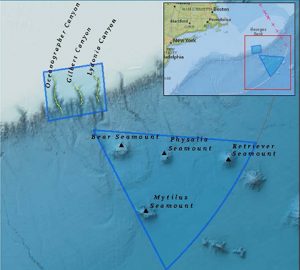 Secretary of the Interior Ryan Zinke recommended President Donald Trump change the boundaries or management of 10 national monuments, including ocean monuments created by the Obama administration. Zinke asked Trump to allow commercial fishing at Obama-designated ocean monuments in the Pacific and Atlantic Oceans, but five of those monuments the Department of the Interior reviewed could be declared unlawful. Earlier this year, the Pacific Legal Foundation (PLF) filed suit against the Trump administration on behalf of New England fisherman opposed to the Northeast Canyons and Seamounts monument off the New England coast. click here to read the story 14:03
Secretary of the Interior Ryan Zinke recommended President Donald Trump change the boundaries or management of 10 national monuments, including ocean monuments created by the Obama administration. Zinke asked Trump to allow commercial fishing at Obama-designated ocean monuments in the Pacific and Atlantic Oceans, but five of those monuments the Department of the Interior reviewed could be declared unlawful. Earlier this year, the Pacific Legal Foundation (PLF) filed suit against the Trump administration on behalf of New England fisherman opposed to the Northeast Canyons and Seamounts monument off the New England coast. click here to read the story 14:03






